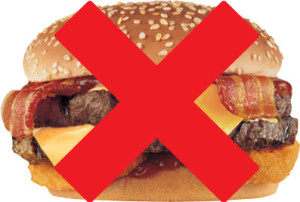So you’re looking to expand to the Middle East? Good idea. But before you make the decision, remember that there are a set of cultural and legal ecosystems you’ll need to consider. This list should be a good start to getting you oriented in restaurant regulations in the Middle East, before expanding your restaurant or hotel business.
1. Nitaqat
This Saudi labor law aims to replace a significant portion of foreign national workers with locals. It has triggered a new law in Kuwait restricting expatriate workers. Given the hospitality industry’s heavy reliance on imported labor, restaurateurs and hoteliers will want to take note – it is particularly salient because in major Gulf states, foodservice is broadly considered a dishonorable profession. Droves of foreign workers are leaving the affected countries (as seen below).
2. Halal Standards of the Gulf Countries
The Gulf Standards Organization (GSO) of the Gulf Cooperation Council (GCC) has a food standards committee, chaired by Qatar. A working group within the GSO has developed two Halal standards: one for general Halal requirements, and one for approving foreign centers, certifications and Halal labeling. Halal is an Arabic word, meaning “lawful,” that dictates which foods Muslims are allowed to eat under Shari’ah law.
3. Spam Surcharge
Since January 2003, there has been a unified 5% customs tariff on all processed food products imported into the Middle East. There are some exceptions – for instance, Oman has a free trade agreement with the US, allowing the import of US processed foods tariff-free – but any executive looking into expansion should know that processed foods will be taxed eventually. They might even be subject to tariffs more than once – partial shipments are subject to tariff each time they enter a new country.
4. No Bacon Cheeseburgers on the Menu
Islamic law forbids consuming pork or alcohol, among other products (carnivorous animals, blood-based products). So forget the bacon and don’t pop the champagne if you’re in a country like Saudi Arabia where alcohol is prohibited.
5. Brand Protection in Yemen
Yemen has a tradition of relying on restaurant names – usually the last names of the proprietor – as an indicator. The name represents not just a brand, but also the type of restaurant, including the food served and whether the atmosphere is casual or sit-down. Restaurateurs seeking to expand to Yemen would be well advised that branding is powerful and, yet, infringements hard to prosecute – counterfeiters abound.
Al-Shaibani is a sit-down restaurant with traditional Yemeni food. Counterfeit Al-Shaibani restaurants have popped up, with little recourse.
6. Don’t Advertise Romantic Weekend Getaways for Engaged Couples
Islamic law prohibits unmarried couples from sharing a hotel room. Even two people traveling on business with no romantic inclination are subject to this rule, so be aware that your expansion plans should target the appropriate audience in your chosen Muslim country.
7. Classification of Dubai Hotels
As a hub city of the Middle East, Dubai is likely in your sights – the city recently unveiled Tourism 2020, a plan for 20 million visitors by 2020. If your expansion plans include Dubai, be aware that their ruler recently issued a new law requiring classification of hotels based on use and level of luxury. He claims that it provides better information to Dubai’s booming tourist population and increased marketing opportunities.
8. Women’s Work
Islamic law has a number of dictates, supplemented by cultural norms. Under Shari’ah Law, women are not allowed to work side-by-side with men. She cannot communicate with male clients or coworkers. To get around this, Saudi Arabia is creating a female-only city to avoid male interactions and get women in more diverse industries.
9. Franchising
There are no dedicated franchise laws in the Middle East. Middle East jurisdictions are bound by civil, criminal, and local law (as well as Shari’ah Law) and franchise rules are drawn from those general bodies of law. In the Gulf Cooperation Council countries, a franchise is considered a “commercial agency” for legal purposes.
10. Separation of Genders
In some countries, women and men must be kept separate as consumers. Even in coffeeshops, male and female guests must be kept apart throughout the ordering and consuming process.
11. Turn that Nightclub into a Coffeeshop
Bars and nightclubs are not legal in Kuwait and Saudi Arabia – after all, alcohol is illegal. Instead, folks looking for a social outlet head to coffeeshops and shopping malls. While local shops tend to fare better with their lower prices and locally sourced ingredients, foreign brands are edging in due to the increased foreign travel of Saudi nationals.
12. Lacking Standardization
There is no standard creation or implementation of laws regarding restaurants and hotels in the Middle East. The GCC Food Safety Committee, the Saudi Food and Drug Administration, local municipalities, and others all must cooperate to create new rules. Implementation of standards and enforcement of laws are not coordinated. Those looking to expand to the Middle East should expect timing to be sticky.
13. Certificates
Check certificate requirements for any countries in which you plan to import products, as there is a network of requirements. Qatar requires a radiation free certificate for food products from Europe, Turkey and the UAE. Saudi Arabia requires a certificate that food products are Dioxin free. The maze of rules and regulations requires certain boxes to be checked.
14. Food Labeling Minefield
While there are innumerous requirements for food labels, nutrition and allergen information are not required. While proprietary products can be an exciting branding opportunity for restaurants and hotels, labeling is one more in the maze of regulations, including specific local rules. A cost to consider before creating products distributed in the Middle East.
15. Inventory Challenges in Saudi Arabia
In addition to chaotic labeling standards, the Saudi Arabian Standards Organization imposes strict shelf life provisions. It makes inventory management a challenge for those in foodservice and hospitality.
16. Local Competition
Strong branding by local chains of restaurants and hotels creates a challenge for foreign chains, and there are strong incentives for local manufacturing of food products. Saudi Arabia imposes import tariffs up to 20% if they compete with locally produced products.
17. Water and Land Use Intricacies
While real estate is not scarce, prime real estate and water rights are heavily contested.
18. Behavior and Dress Codes
It may take some adjusting for Westerners to understand that behavior and dress codes can fall within criminal codes. For instance, in the UAE, immodesty and public displays of affection can be subject to imprisonment, and a patron’s lack of knowledge about the law is not an excuse.
19. Currency
Whether to peg to the US Dollar is an ongoing debate recently reignited. It will have obvious ramifications for Western hospitality companies looking to expand to the Middle East, including borrowing and lending, price point, and trade levels.
20. Investment Regulations
Any new business will be considering the investment infrastructure and regulatory rules. The Middle East can be a promising area for investment because of the availability of funding, though there are networks of rules surrounding foreign investment. A local sponsor is key, especially in the UAE and Saudi Arabia.




